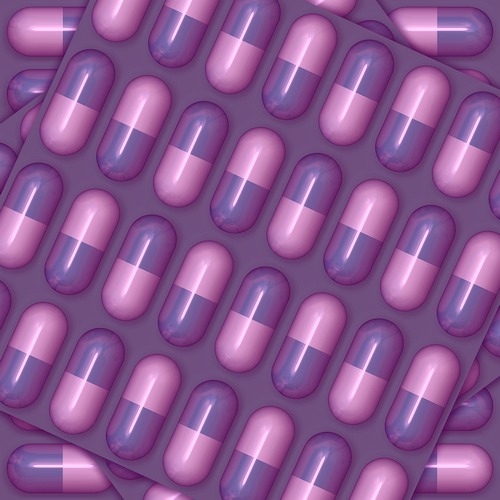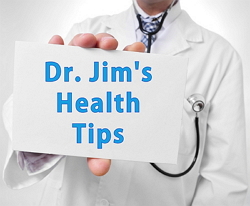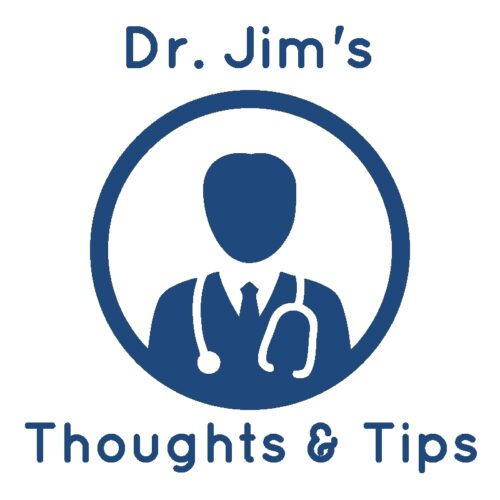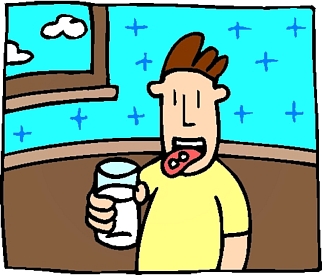
FDA is warning consumers and health care professionals about certain hand sanitizer products, including those manufactured by Harmonic Nature S de RL de MI in Mexico, that are labeled to contain ethanol or isopropyl alcohol but have tested positive for 1-propanol contamination. 1-propanol, not to be confused with 2-propanol/isopropanol/isopropyl alcohol, is not an acceptable ingredient for hand sanitizer products marketed in the United States and can be toxic and life-threatening when ingested. The agency urges consumers not to use these 1-propanol-contaminated products and has expanded its do-not-use list of hand sanitizers at www.fda.gov/unsafehandsanitizers to include hand sanitizers that are or may be contaminated with 1-propanol, in addition to other hand sanitizers the agency is urging consumers not to use.
There is a good amount of useful info on the website mentioned above. The bottom line is don’t buy sanitizers made in Mexico. There are a number of sanitizer products that are ineffective being sold. I carry a small bottle of my own sanitizer to use when I am out of the house. I can’t be sure of the public sanitizers offered.

I was given a copy of the April Fortune magazine by a good friend who sought my impression of an article concerning Electronic Medical Record systems or (EMR). The title interestingly enough is “Death by a Thousand Clicks” and presents a dreadful picture of tragic outcomes as a result of mistakes between what information doctors put into the new electronic medical records regarding orders for tests and medicines, and transmission of data to other healthcare providers. Also, the amount of time and effort required to enter the information which takes time away from interaction with patients.
My impressions are limited because I retired before the Electronic Medical Record (EMR) came to full fruition. However, if half of the defects mentioned in the EMR are true, it is a dangerous challenge. Now more than ever, patients should be more participatory in their healthcare. Take a pad and pencil along and jot down notes, especially names of new medicines and tests the doctor wants to order. Ask for full disclosure. What do you think I have? When should I feel better? Under what circumstances should I become concerned? These will serve to start participation in your healthcare and perhaps save your life.

The federal government has a website worth noting. It compares the medical care at over 4,000 Medicare-certified hospitals. Among the hundreds of essential and sometimes critical criteria used, are measures of what gets a favorable result in most of the conditions mandating hospital admission. As an example, the time different treatment measures for a heart attack would be started after arrival. Look up your hospitals. You may be surprised and it could save your life!

Potential…
An article in the Houston Paper’s Health/Science section is worth a mention, the title is “HIV Drugs may help treat Alzheimer’s”. I refer to it because the paper was published in the journal Nature (one of the top). The researchers have evidence that drugs that successfully treat HIV make positive changes in Alzheimer diseased brain cells. This would be great news because the 5.7 million having the dreaded disease currently have no hope. For years research for Alzheimer’s treatment has focused on a protein secreted in excess (amyloid) which disorders the brain substance. This approach has not been successful. One logical conclusion could be that this is not the primary cause. But there was no significant alternative to pursue. Now, there may be. THANK GOODNESS.
Swallow This
One-third of adults experience difficulty when swallowing solid meds.1 Obviously, moving the meds to the very back of the tongue and swallowing them with a large gulp of liquid helps. A study on the best way to swallow meds showed there is relief in extending the neck forward during swallowing or sucking bottled water from its bottle when swallowing solid meds.1
I am updating this because I personally have made a discovery about taking your meds that I believe would be helpful. WHAT you say – AT YOUR AGE? Yes Indeed. I normally take meds and the supplements I have recommended to you several at once. Before my discovery, I needed a full glass of water. Now a half glass will do because the novel method is efficient and more comfortable. Go through the swallowing phase right now. Observe that your tongue lies flat and meets the roof of your mouth and the back of your throat relaxes. Now as you swallow move your tongue like a spatula forcing whatever is in your mouth to exit as your throat relaxes. Taking your meds should be easy…
1. Schiele JT, Schneider H, Quinzler R, Reich G, Haefeli WE. Two techniques to make swallowing pills easier. Annals of family medicine 2014;12:550-2.

Bad Aspirin?
A nice lady asked me about the recent papers that refute the idea that low dose aspirin is not good for the prevention of heart attacks. The following is the answer –
On the other hand, there are many papers showing aspirin reduced heart attacks, lessened strokes, and reduced the chance of colon and rectal cancer. There was an adage in medicine that went, “one mouse does an experiment make” (i.e. several studies with the same result confirm the data). The American Heart Association recommends low dose aspirin. The American College of Cardiology says:
“For 10,000 men taking aspirin who are ages 50-59 years and have a 10% risk of CVD, 225 nonfatal MIs, 84 ischemic strokes, and 139 colorectal cancers would be prevented with 284 serious GI bleeds and 23 hemorrhagic strokes caused. In women of the same age, significantly less nonfatal MIs would be prevented, but with a greater reduction in ischemic strokes, comparable CRC (my insert: colorectal cancer) prevented, and with a similar number of serious GI bleeds and hemorrhagic strokes created.”
The number of fatal heart attacks is not mentioned but in the USA it is the number one cause in those over 65 years. The CDC lists over 507,000 MI deaths yearly. Wow!
The evidence is not as certain for people less than 50 years or those over 70 years. Ask your Doc.

Bad Tech
Today, I read a warning to those having new cars with keyless systems. The warning was that you could inadvertently leave, upon parking in the garage, your car’s engine running. That warning is reasonably possible. The recommendation is to put a sign in your garage to remind you to turn off your engine. I have a different reminder that works reliably: have your car’s radio on. My BMW’s radio will not be quiet until the engine has been turned OFF.
The danger is that any engine in an unventilated space will accumulate carbon monoxide (CO). This byproduct attaches 300 times as readily to red cells as does the oxygen we breath which keeps us alive and rapidly suffocates the breather. Thus, it crowds the essential life-giving stuff out.
Good Info
The Blue Zones is a book everyone who wishes a longer healthy life should read. It describes lifestyles in the 5 longest-lived places on earth. I read it and enrolled in the Blue Zones website and receive messages from them. The last one is about the foods that have anti-cancer properties. Dr. Joel Fuhrman is the expert making suggestions. He recommends greens, beans, onions, seeds, mushrooms and berries. All of which, especially beans and berries, have anti-aging molecules. And we must remember cancer, along with the other diseases of older people, is the result of not blocking the aging molecules.

Cheaper Meds
I recently had a good friend tell me that they were taking Prilosec, purchased over the counter, as suggested by their doc for GI problems. I referred them to a chapter in my new book on “Living Better” with the following info: “An area of possible savings is in getting a prescription for an over the counter medicine if you take it on a regular basis. A person taking over the counter 40mg daily Prilosec pays much more than a $5 prescription for a month’s coverage of the same active ingredient. I calculated that getting a prescription of this rather than getting it over the counter is a yearly savings of $345. If you are requiring higher doses of non-narcotics pain relievers such as Aleve or Advil, there are modest savings with prescriptions. Get informed and be involved.”

Great Info
Recently I was asked about obtaining reliable medical information. There is a source available to the general public which doctors use; it is PubMed. Click the link PubMed and you will arrive at the website. There are over 27 million articles cited and available for review.
A search box will appear and your search will begin. Put in a general topic such as cancer and multiple sub-categories will appear. Choose a sub-category such as cancer risk and over 405 thousand articles will be listed. Select the “similar articles” at the bottom of an article that has a title of interest, such as Braca1, (a gene associated with breast cancer) and 230 articles will appear. The latest articles are first.
You will see abstracts which are available for review. The format is background, methods of the research, results, and conclusions.
You can search by author’s name. if you go to Jones JW, you will pull up 664 citations but only 400 were written by me. Searching by author’s name can locate articles quoted in the news; so that you can get the information directly and decide whether or not it was quoted correctly.
Better info leads to being better informed and that cannot help but help.

Flu Shots
Often we rely on our doctors to recommend our vaccination schedule. Aside from flu shots during the flu season, this is not the ideal approach. Vaccinations are not under professional control; they are in the suburbs of your medical care because they are over-the-counter shots. In other words, you are responsible but need to know more about what to do.
The Department of Health and Human Resources tells you what to do at a website as follows: www.vaccines.gov. For information on vaccines for Seniors 65 and older click Seniors Vaccines . Next click on The Adult Vaccine Quiz and take the quiz. For more details click on Adult Immunization Schedule and be informed. Get with the program. It could save your life.

Super Bugs
Today, the Paper has a story about “super bugs” known medically as MRSA. These are bacteria living on people’s skins or in noses which have been transformed by antibiotics into being resistant to antibiotics. They are genetic-mutant survivors. They cause havoc in hospital ICUs and it is estimated that 9,000people die from infections with MRSAs each year. About 2% of the population has MRSA populations because of the 33% of people having “normal” staph (precursors of MRSA) have been treated with antibiotics repeatedly, mostly inappropriately, for colds and other viral infections. The normal staph become super-bugs because they mutate into those who can survive the antibiotics. The super-bugs thus are brought into the ICUs unexpectedly and because of personnel going from one patient can be spread to others. Patients in ICUs are the sickest in a hospital and likely have immune system problems. They don’t need infections with new bacteria, especially those who are resistant to antibiotics. You can help in several ways to reduce this problem. First, the and most question when receiving antibiotics for viral infections. Runny noses, coughing up clear sputum, most sore throats and most GI problems are viral and antibiotics don’t work. Reducing unnecessary antibiotics is key. You don’t want MRSAs on yourbody. Next, if you are admitted to an ICU watch attendants carefully. Ask them to wash their hands before touching you or anything in your room. Report anyone who seems to be lax in their handwashing.

Statins
I am a member of the prestigious Society for Vascular Surgery and they send members articles they consider particularly important. January’s article was from a scientific presentation at the American Heart Association. It is not published, yet. The study examined the drug class statin use in 208,924 people with vascular disease. A meaningful sample size! The mortality rates were determined for subjects over a 5-year follow-up concerning statin use. Those taking high-intensity statins (Lipitor and Crestor) had mortality rates of 20.4%, this increased to 28.6% with all other statins, and became almost 34% in those not taking statins. Also, those taking high-intensity statins had lower amputation rates. Note, the College of Cardiology recommends high-intensity statins for all people with known vascular disease.

Medication Overload
The Wall Street Journal has an informative article on 10/11/16 entitled, “When Patients Take Too Many Pills, Doctors Deprescribe.” This article examines the problem of excessive medications in those over middle age. In medical jargon taking over 4 medicines is termed polypharmacy. Medicines change the way the body’s cells work. Almost all medicines need to be available in a certain bloodstream dose to be effective but overdoses will be toxic. The desirable range of medical doses is the “therapeutic index” of a particular medicine. The narrower the therapeutic index, the easier it is to get to a toxic level. The different interactions between meds may alter the therapeutic indexes, making some ineffective or worse, toxic. There are as many as 7% of hospital admissions in the elderly that are from drug interactions.
These problems should be dealt with by first by asking your doctor to review your meds to see if you need all you are taking. Next, periodically perhaps when you get refills, ask your pharmacist to check whether there are any potentially harmful interactions.
Getting it all together
The most important way to preserve mental health is to keep learning new ideas. It is strongly recommended for one to learn a new language but if you are like me, English seems good enough. I want to suggest a way to stay on top of things mental that is (for me) interesting. I go to the website This Day in History to appreciate a snapshot of what important happenings took place on that day. And if I don’t remember much about an important happening, I look it up.
For instance, today (7/16/2016) the Trinity Nuclear Test successfully took place launching the nuclear age which still may or may not end human life as we know it. It marked the successful end of the Manhattan Project to produce a nuclear bomb. The bomb was exploded in the southern New Mexico desert and gave the US the ultimate military weapon. The incentive to build a bomb was initiated by a letter from Albert Einstein to President Roosevelt in 1939. $6,000 was appropriated by our ever sensible government but soon ballooned when it was discovered that German scientists were working on a bomb. The project ballooned to 2 billion dollars and gathered the finest minds in the free world.
Try this method to stimulate and guide your learning processes.

Reduction of Post-Hospitalization Problems by Health Assets
My approach has been to show the benefits of a so-called healthful lifestyle which is, in reality, an anti-aging lifestyle. We have repeatedly reviewed scientific studies showing that a lifestyle with components of physical activity, proper diet, socialization, moderate alcohol, and non-smoking has many benefits.
Benefits include a longer more enjoyable life, partly from reduced disability, and relative freedom from aging-related diseases. Ancillary benefits include when a serious disease is encountered, people with better lifestyles do better from medical therapy─ especially certain types of cancer. Added benefits are fewer emergency room visits and hospitalizations, reduced medical costs, and fewer meds.
I ran across an article that emphasizes another benefit which I had not considered. I suspected the following alarming facts but had not seen the data substantiating them: When elderly people are hospitalized for serious problems a substantial number will die within three months and some others will have a new need for residential care. A study looked at health assets or positive behavior-related aspects of hospitalized patients and found that having these health assets reduced the bad outcome rates.1
- Gregorevic, K. J., W. K. Lim, N. M. Peel, R. S. Martin, and R. E. Hubbard. “Are Health Assets Associated with Improved Outcomes for Hospitalised Older Adults? A Systematic Review.” [In Eng]. Arch Gerontol Geriatr 67 (Jun 21 2016): 14-20.

Take Your Magnesium
In the past, I have recommended taking a magnesium supplement provided you do not have kidney disease. The reasons for such a recommendation are listed below. 400 mg is a good amount but magnesium I always bound to another substance, such as citrate. The label will tell you how much magnesium you are getting. If it says 400 mg of Magnesium (as Magnesium citrate) it is 400 mg of magnesium. However, if it says 500 mg of magnesium citrate, you will only be taking 64 mg.
Magnesium is the fourth most prevalent electrolyte in human bodies and the only one that is not adequately supplied by many diets. American diets are mostly inadequate to prevent chronic magnesium deficiencies. Overall one-fourth of diets are insufficient in magnesium and this increases to 80% in the elderly. Magnesium is added by eating a variety of nuts, seeds, herbs, and grains that may not be commonly included in American diets: Brazil nuts, molasses, rice, and dark chocolate are examples.
Magnesium is not commonly ordered in laboratory tests as are the other three most common positive electrolytes. Magnesium is necessary for optimal functioning of over three hundred essential biochemical reactions. It promotes muscle, nerve, and bone health. Magnesium stabilizes the heart rhythm, provides reactions for a healthy immune system, and keeps bone tissue strong. Deficiencies have been linked to cardiovascular disease, high blood pressure, diabetes, Sudden Death Syndrome, migraine headaches, muscle cramps, and increased colon cancer. Further, higher intake of magnesium has been shown to reduce colon and rectal cancer.
Magnesium excretion is increased when taking diuretics or drinking alcohol. One or two 400 mg capsules of magnesium daily will supply adequate amounts. It is available in a variety of forms and I recommend Magnesium Aspartate. When first starting supplementation, loose stools may occur so it is best to take the capsules in the morning with breakfast. Loose stools usually stop with time as the body becomes used to the increased dose.

Reduce Those Calories
The Wall Street Journal published an important article on the beneficial effects of caloric restriction on Multiple Sclerosis. You might immediately think ─so what─ but you would be missing the profound implications: reducing calories not only is the best antiaging, health promoting activity, it reduces the ravages of chronic disease already acquired. Fasting is part of every major religion. It has a variety of meanings, not the least is increased mental alertness. There is abundant scientific data that clearly shows increased healthy lifespan is associated with caloric restriction of 10% to 30% of what would be consumed if unlimited foodstuffs were made available. An increase of 20% to 50% is seen in yeasts to primates. And this is not from fasting, just limiting available food. Think on these matters.
Venous Blood Clots.
The lead article in the premier medical journal dedicated to venous disease addresses the most serious problem with those structures─ blood clots. In medicine, clotted veins is termed venous thrombosis. For an almost unknown threat to our health, venous thrombosis is unappreciated. Blood clots may obstruct and limit blood flow causing swelling, a warning sign, or break loose and travel to the lungs with a potential of killing the person. The number of people with venous clotting estimates varies but is substantial. According to the CDC (reliable data) 550,000 patients were in the hospital with this diagnosis of migratory blood clots last year. About one out of four die suddenly. Half of the patients develop venous thrombosis after operations and hospitals with busy surgeons usually have the best preventative methods in place. Have surgery in busy places. The Texas Medical Center is the busiest in the world.
The most famous physician, Dr. Virchow, of the 19th century outlined the reasons for intra-vascular clotting to take place: slowed circulation, damage to the Teflon of blood vessels, and increased clotting. The most important by far is slowed circulation that is why hospitalized patients are at more risk. Also, people on long airplane or car trips are as well. Support stockings and periodically walking obviates the risk. Increased clotting occurs after surgery and when dehydrated. So, drink plenty of water in the summer. Obese people have three times the chance of having clots; so, lose weight.
For our limbs there are deep and superficial venous drainage clotting in the superficial system produces a tender lump and is not usually dangerous. The deep system is much bigger and is compressed by muscles that may dislodge clots. Deep clots are manifest by swelling of the ankle-foot region or entire leg on one side. Tenderness may occur in a calf or where the leg joins the trunk. Any of these symptoms should prompt a trip to the emergency room. There are simple non-painful tests to diagnose accurately the problem and institute effective treatment.
Check Your Risk
The Framingham Study of Heart Disease started following over 5,000 residents of Framingham Massachusetts in 1948 and continues today for three generations. You can use the data from this remarkable study to calculate your risk of a heart attack in the next 10 years by going to Framingham Study of Heart Disease.
I hope it is low.
Reduce Holiday Stress
The Holidays can be stressful. Constant worry and stress can make you feel like you’re living in your head, but the rest of your body can suffer the effects of that stress. Fortunately, the rest of the body can also help you relieve your stress! Try some of these Simple Stress Relief Tips from Natural Wellness:
• Meditate, or just breathe deeply and be present in the moment, a little each day
• Do some yoga.
• Take a walk — either brisk and invigorating or slow and meditative.
• Take a nap — naps can lower your cortisol levels and thus relieve some of your stress.
• Listen to music — whether you’re in the mood for classical or New Wave, music that you enjoy can help you feel less stressed.
• Pet your dog or cat.
• Hug a loved one.
• Keep a gratitude journal to show yourself that more things are going right than going wrong!

Increase Your Vitamin D
As I have mentioned in the supplement tip below, vitamin D is one of the vitamins that is likely to be deficient in older people.
The following is from Consumer Lab:
“As discussed in the Vitamin D Supplements Review, the most important thing about taking vitamin D is not whether it’s dry or in oil, but that you take it with a meal, as that can increase absorption by about 30 to 50%. If you can’t take it with food, the oil form may be slightly better. (Note that capsules containing oil are referred to as “soft gels.”)
We have tested and reviewed many products in both forms (as well as other forms, such as drops — which are also in oil). These reviews are found in the Vitamin D Supplements Review.
From Baylor’s Security Department –
Here are a few tips to keep you from becoming a crime victim during the holidays:
• Avoid carrying large sums of money or valuables with you, especially when you are out shopping. Carry only what you need.
• Try not to overload yourself with packages or other items. Keep your hands as free as possible.
• If you carry a purse, keep it close to your body, preferably in front, and keep it closed or zipped. Pickpockets love open purses!!
• Always try to park in visible, well-lit areas.
• Do not leave packages or valuables visible inside your car. Remember: LOCK your car, TAKE your keys, HIDE your belongings.
• When you approach your parked vehicle, visually check the areas around the vehicle for suspicious persons or activity. If you observe anything suspicious, walk to where there are other people and call security or the police.
• If you think you are being followed to your vehicle, enter through the front passenger door. This allows you unobstructed entry, allows you easily to lock the doors and insert your key into the ignition and start your vehicle. It also gives the appearance that someone else is with you or waiting in the vehicle, which could give you that extra second you need to secure yourself inside your vehicle.
• Use extreme caution when using ATMs. Look for suspicious persons or activity before you roll your window down. If you do not feel safe, keep your windows shut and doors locked and drive away. Then alert the police.
Check Post Surgery Medications
Medication errors or adverse drug events after surgery occur in as many as one in twenty perioperative medication administrations, according to data published online in the journal Anesthesiology.
A prospective observational study of 277 surgical operations and 3,671 medication administrations found 193 cases (5.3%) involved a medication error or adverse drug event, nearly four-fifths (79.3%) of which were preventable and 68.9% of which were serious (Anesthesiology. 2015 Oct.)
Ask the pharmacist to double check post-op meds.
Something Super In the Sky
Something spectacular is about to happen this Sunday evening: a supermoon, harvest moon, and total eclipse will showcase simultaneously. “The last time that we had a supermoon perigee harvest moon lunar eclipse was Sept. 15, 1494,” according to the Adler Planetarium.
At 8:07 pm CDT, the Moon will slip into the Earth’s shadow and will continue to darken/change color during the total eclipse from 9:11 pm CDT until 10:23 pm CDT. While more common than solar eclipses, lunar eclipses last longer and can be viewed almost anywhere on the night side of the Earth (provided it’s clear). And no two are ever the same—they can range in color from brick red to copper to dark gray.
Kinda like God or Nature (depending on your preference) showing off.
Be Smart and Get Your Flu Shot
Be aware. It is almost Flu season. Flu is the nickname for the sometimes deadly influenza virus. Each year 25,000 to 35,000 people die because of those guys, not to mention the severe illnesses they cause. And about 80% of deaths are in the elderly. On average, protection is about 60% when given the vaccine and those vaccinated who contract may experience milder cases. Protection is not 100% because older people’s immune systems are weaker and the CDC estimates which of the many strains will cause the most problems. There are 29 strains and subtypes of the A viruses. B viruses have two lineages. C viruses are of little consequence. The CDC has developed several different vaccines which differ from the past. You can read about the CDC’s efforts at CDC Flu Protection and Vaccines.
The classical vaccine protected against three viruses; now there is a vaccine with protection against 4. There is also a vaccine for people with weakened immune systems that is stronger. If you are prone to get infections and are generally unhealthy, consider the souped-up version; if not consider the 4 strain shot. The nasal application is available for younger people. Those who are allergic to eggs should not get the shots.
Don’t Believe Everything in Media
Dr. Oz’s syndicated column Sunday specified that B vitamin overdosing had side effects. I searched the literature and did not find evidence in support.
The following is an article that states vitamin overdosing is extremely rare.
Vitamin Intake from Food Supplements in a German Cohort – Is there a Risk of Excessive Intake?
Willers J1, Heinemann M, Bitterlich N, Hahn A.
Institute of Food Science and Human Nutrition, Leibniz University Hannover, Germany.
Int J Vitam Nutr Res. 2014;84(3-4):152-62. doi: 10.1024/0300-9831/a000202.
Abstract
Food supplements, if not properly used, may lead to potentially harmful nutrient intake. The purpose of this survey was to examine vitamin intake from food supplements. Taking into account the intake from food, as obtained from the National Nutrition Survey, it was determined whether the tolerable upper intake levels (ULs) were exceeded via supplements alone, or in combination with food. Data from 1070 supplement users (18-93 years) was available. The dietary and supplemental vitamin intakes of three groups were analyzed: average intake (50th percentile food+50th percentile supplements), middle-high intake (50th+95th) and high intake (95th+95th). Vitamin C (53%), vitamin E (45%) and B vitamins (37-45%) were consumed most frequently. Few subjects (n=7) reached or exceeded the ULs through supplements alone. The UL for vitamin A and folate was reached by a few men in the middle-high group, and by a few men and women in the high intake group. Otherwise, even in the high intake group, the recommended vitamin D intake of 20 µg/day (in case of insufficient endogenous synthesis) could not be achieved. The use of food supplements was not associated with excessive vitamin intake in this survey, except in a small number of cases. Vitamin A intake above the UL was the result of high dietary intake which also included the intake of β-carotene, rather than the result of overconsumption of food supplements. Diets mainly included folate from natural sources, which has no associated risk.
Avoid Mr. P. Ivy
A respected member of our group recently had a vacation upended because of a painful reaction to an irritant from poison ivy. There are three plants in America that have a painful topical irritant in their leaves: poison ivy; poison oak; and poison sumac. When God made us supreme commander of other species, He omitted these three. The one we have in south Texas is poison ivy. Learn to recognize poison ivy.
It has:
• Three leaves on a long stem.
• The leaves are pointed.
• The leaves are frequently notched at about the middle.
• The leaves are frequently oily looking.
• The leaves appear green, except in the fall when they may redden.
• The leaves may not be harmful to other animals.
Poison ivy can grow as a vine, bush, or a single plant but in Texas most often as a vine.
You Are NEVER Too Old to Exercise
A common excuse for not paying serious attention to wellbeing and adopting healthy behaviors is I am too old for changes to benefit me. This assumption is a dangerous, treacherous untruth. As we age, we should be more aware not less of the need to promote wellness because we are entering a minefield of health problems.
In youth and middle age, all our organs have considerable reserve, which allows robust lifestyles. Our reserve allows us to get up and run a mile, lift our weight equivalent, and do other feats requiring multiple efforts than just sitting. Our mental reserve allows us to obtain advanced degrees, learn a foreign language, invent amazing technologies, and write learned books. This is much above being hunter-gatherers.
Aging gradually reduces our reserve. As an example, overall fitness is measured by the maximum amount of oxygen one can consume during exertion (VO2 Max). At the end of middle age, physical health (VO2 Max) decreases by as much as 20% each decade.{Fleg, 2005 #1720} Compare this to your bank account. Isn’t it nice to have a buffer before you are broke? In health matters, being broke is not good, avoid health broke.
The two main organs that keep us alive are our heart and lungs. Yes, all of our organs are important but almost 80% of deaths results from lack of reserve in those two organs. Like the great bank robber, Willie Sutton quipped when asked why he robbed banks, “That’s where the money is.” We should take a lesson from Willie and concentrate on our heart and lungs; that’s where the problems are.
Everyone knows that they can increase their bank account by doing a little extra work. It is the same with our bodies. A caution: Start slow and if you have any doubts about your health status, get advice from your doctor.
Prepare For Your Doctor Appointments
Patients usually can manage their doctor and dentist’s visits to make them more efficient and more convenient. For the most part, the doctor does not know who will be seen in a clinic, let alone what order or times individuals will appear in the examining rooms. I commute, probably as many of you do, to doctor’s offices miles away. I request appointment times so I will not travel during rush hours both to arrive and to return. It can double the commute. Also, when I have events I consider important, I do not allow elective appointments to interfere. Schedulers are usually very helpful people who try to accommodate patient’s wishes, especially if you explain why you desire certain times.
Sometimes, the doctor gets behind and the waiting room fills. However, there are plenty of available magazines you otherwise would never read. Ugh! To avoid this, you can request an appointment at the beginning of the scheduled clinic. Getting behind in a clinic is a gradual phenomenon. So, the earlier your appointment, the less wait you should have, especially if you are the first patient to arrive.
This process does not apply if you are being “worked in” for an urgent visit. Then the scheduler tries to find the suitable time to allow leeway.
For yearly checkups, I try to have tests scheduled several days in advance then my doctor will have complete information when he takes a history, does a physical exam, and can discuss the treatment plan comprehensively in a single visit.
Plan for the next visit. Most patients just show up and let the doctor play 20 questions with them. The reason for the visit is termed your “chief complaint”. The most often reason to seek medical care is discomfort, or if severe enough, pain. Some helpful considerations are, is the character of the pain. Is it sharp or dull? Is it constant or intermittent? What makes it worse or better? Does it happen in relation to an activity, such as eating? Have you had it before?
Have no doubt, with a little knowledge; you can add a great deal to your medical care.
Too Many Sugary Drinks
The (7/1/15) edition of the Houston Chronical reported quite astounding estimates of the number of deaths caused by surgery-beverages. First, I have read the article on PubMed and it is legitimate. It was published in the prestigious journal Circulation and the authors are from Tufts University, which is notable.
They estimate that almost 200,000 people on Earth die each year because of surgery-beverages intake and 25,000 are American. How does something as seemingly innocuous as a drink with extra sugar contribute to serious health problems? Was Bloomberg’s New York City Soda-Ban justified?
Let’s examine the uncontestable facts. The death rate rises as we age from age-related (chronic) disease. There is considerable evidence that the aging process is from damage as part of living. Living requires energy produced by oxidation. Oxidation produces fire (combustion) and our chemical fire (respiration) as well. Fires produce sparks, which can cause damage, depending on where they land. Our “fires” produce sparks as well (free radicals), which can cause damage, depending where they land. Hotter fires generate more sparks and can cause greater damage.
Our body’s safety mechanism is to produce fire extinguishers (antioxidants) and the “healthy diets” supply these substances as well. Sugars are our primary fuel, fats and proteins are reserves. When we eat a meal sugars are absorbed rapidly into our bloodstream. And just as stokers on a steam locomotive shoveled coal into the firebox, cells have insulin that transports sugar into our cells.
The blood sugars must be kept within narrow limits to avoid problems. So, the more sugar absorbed, the faster it is stoked into the cells. Cells have furnaces (mitochondria), which must “burn” hotter, like fireboxes when presented with more fuel. Ergo, more sparks, which can override the protective mechanisms, which increases damage.
It is obvious that it is wise to limit the amount of sugar and the rapidity we consume it but foods and beverages have different rates that your body will absorb the sugar (glycemic index). For a glycemic list google it. Be aware. Be cautious. Live long and prosper.
Bloomberg was justified but how about cigarettes. Legislate good sense???


















